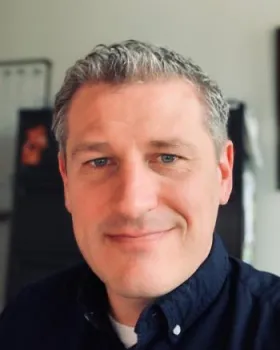
Bug Squad Blog
By Kathy Keatley Garvey
"Mosquitoes are arguably the deadliest animal on the planet, threatening half of the world's population with the risk of mosquito-borne diseases such as malaria and dengue."
So says mosquito researcher Ryan Smith, an associate professor in Iowa State University's Department of Plant Pathology, Entomology and Microbiology, who will discuss his research at the next UC Davis Department of Entomology and Nematology seminar, set for Monday, April 14.
Smith will speak on "Characterization of Mosquito Immune Cells and Their Roles in Malaria Parasite Killing" at 4:10 p.m., in Room 122 of Briggs Hall. His seminar also will be on Zoom. The link: https://ucdavis.zoom.us/j/95882849672.
His abstract: "Immune cells, or hemocytes, are integral components of the mosquito innate immune system and significantly contribute to mosquito vector competence. Despite their importance, mosquito hemocytes have primarily been characterized by morphology, with few resources to enhance their further study. Recent proteomic and single-cell studies have begun to unravel the functional diversity and complexity of these cells, enabling the development of genetic tools to enhance the study of mosquito hemocytes and to better understand their contributions to malaria parasite killing. This seminar will explore the recent advances in the characterization of mosquito hemocyte populations and their multimodal roles in the recognition and killing of malaria parasites in the mosquito host, highlighting potential mechanisms for strategies to disrupt malaria transmission."
Hosting him will be medical entomologist-geneticist Geoffrey Attardo, associate professor, Department of Entomology and Nematology and chair of the Designated Emphasis in the Biology of Vector-Borne Diseases. "Ryan’s work," Attardo said, "focuses on the role of cellular immunity in insect disease vectors, and he is doing fascinating work on innate and cellular immunity in the context of malaria infections in mosquitoes."
Smith received his bachelor's degree in biology in 2002 from UC Riverside. While working on his undergraduate degree, he became interested in mosquito transgenesis and decided to stay at UCR for his graduate degree to work with Peter Atkinson. Smith completed his doctorate in 2007, and after a brief postdoctoral fellowship in the Atkinson lab, moved to the Johns Hopkins Bloomberg School of Public Health to study mosquito immunity under the supervision of Marcelo Jacobs-Lorena.
In 2015, Smith joined Iowa State, where has implemented an interdisciplinary approach to examine mosquito immunity and mosquito-borne disease transmission.
In an earlier seminar presented to Iowa State University, Smith said of mosquitoes: "The mosquito immune system is an important determinant in the ability of the mosquito host to acquire and transmit these deadly pathogens, of which mosquito immune cells have been implicated as critical mediators of pathogen survival. Despite this importance, the biology of mosquito immune cells has been severely limited by the lack of genetic tools and cellular markers that would enable their study. Our recent work has taken advantage of the phagocytic properties of a subset of these cells to examine their contributions to mosquito immunity through interdisciplinary approaches using proteomics and chemical genetics to better understand the physiological signals that regulate these cell populations and their functional contributions to malaria parasite killing in the mosquito host. From these studies, we demonstrate how this knowledge can be translated for real-world approaches to control malaria."
Coordinator of the seminars is nematologist Amanda Hodson, assistant professor. She may be reached at akhodson@ucdavis.edu for any technical issues with Zoom.
(Cover photo is a malaria mosquito, Anopheles stephensi, drawing blood. Photo courtesy of Wikipedia)

